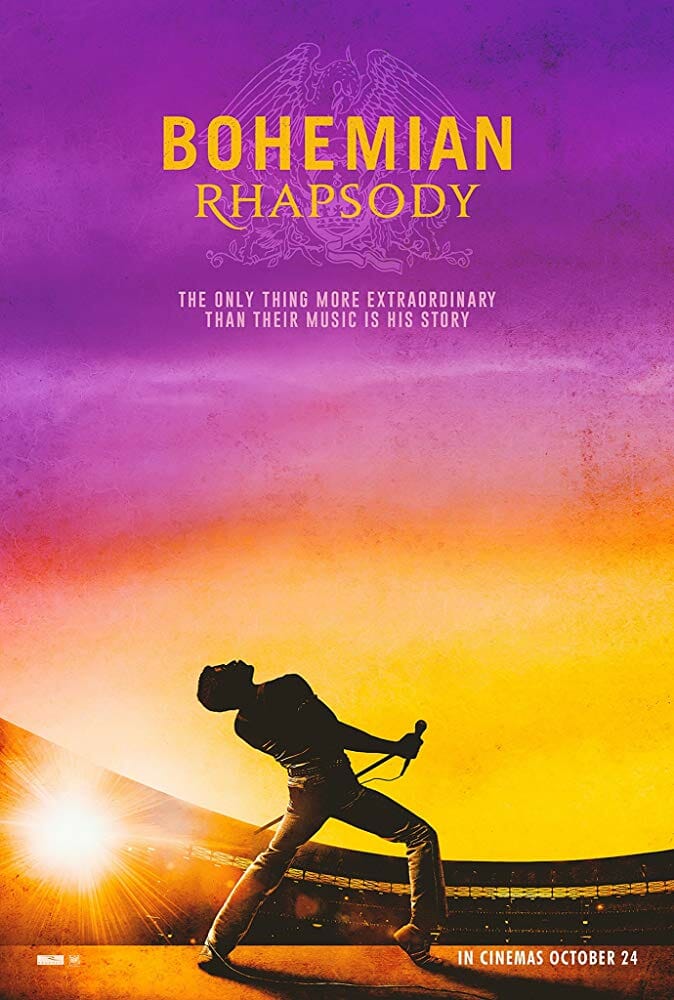Originally the Fox Film Corporation, founded in 1915 by William Fox, the film studio merged with Twentieth Century Pictures in 1935. Fox was then bought by Rupert Murdoch in 1985, where it became part of News Corporation, before the film studio came under parent company 21st Century Fox in 2012. In March of this year, the Walt Disney Studios officially acquired 21st Century Fox, along with select other Fox film and television properties in a $71.3 billion dollar deal. When the deal was finalized, Disney acquired several film assets under 21st including 20th Century Fox, 20th Century Fox Animation, Blue Sky Studios, Fox Studios Australia, Fox Searchlight, and Fox 2000 Pictures. It was initially announced that Disney would keep Fox 2000 Pictures running, the production company which did Love, Simon, but it has since been announced the label will shutter in October 2019.
In terms of LGBTQ representation, Fox has had its ups and downs, but it did introduce two of the earliest depictions of transgender characters in film with the features Myra Breckinridge (1970) and The Rocky Horror Picture Show (1975). Other noteworthy LGBTQ-inclusive films from Fox include Making Love (1982), still one of the most realistic gay loves stories to come out of a major studio, as well as Silkwood (1983), The Object of My Affection (1998), The Family Stone (2005), Independence Day: Resurgence (2016), and Alien: Covenant (2017).
Bohemian Rhapsody
Vito Russo Test: Pass
Widest theatrical release: 4,000 theaters
The long-awaited biopic of bisexual Queen front man Freddie Mercury was released last year after several years of production issues and cast and crew changes. The film made a definite impact; shattering box office records in the music biopic genre and bringing the story of an out character to audiences who aren’t necessarily flocking to other queer movies. Unfortunately, the film missed a number of opportunities by not fully exploring Mercury’s identity or his relationship with long-term partner Jim Hutton, and largely glossing over his diagnosis as HIV-positive.
For much of the film, Freddie’s relationships with men are portrayed as having a negative effect on his life. Those relationships and parties are painted as part of why he is becoming distant from the band or not performing to the standard expected. Though the film does pay off in a sweet moment at the end as Freddie introduces Jim to his family and then later brings him to the Live Aid show, these short moments and the final title card about their relationship lasting through Mercury’s death did not give enough weight to what was such a significant part of his life. This is particularly true when contrasted with the screen time the film gave to Freddie’s relationship with his previous partner Mary, and the problematic moment of Mary telling Freddie that he is gay when he comes out to her as bisexual.
While it is notable that the film ended on the high note of Live Aid rather than focusing on Mercury’s illness and death, we would have liked to have seen the film strike a better balance in including how HIV shaped his story and the advocacy work done in his name after he passed.
In a press statement about removing the film from contention for the GLAAD Media Awards in light of accusations against director Bryan Singer, GLAAD noted: “Bohemian Rhapsody brought the story of LGBTQ icon Freddie Mercury to audiences around the world, many of whom never saw an out and proud lead character in a film or saw the impact of HIV and AIDS in fair and accurate ways. The impact of the film is undeniable. We believe, however, that we must send a clear and unequivocal message to LGBTQ youth and all survivors of sexual assault that GLAAD and our community will stand with survivors and will not be silent when it comes to protecting them from those who would do them harm.”
Deadpool 2
Vito Russo Test: Pass
Widest theatrical release: 4,349 theaters
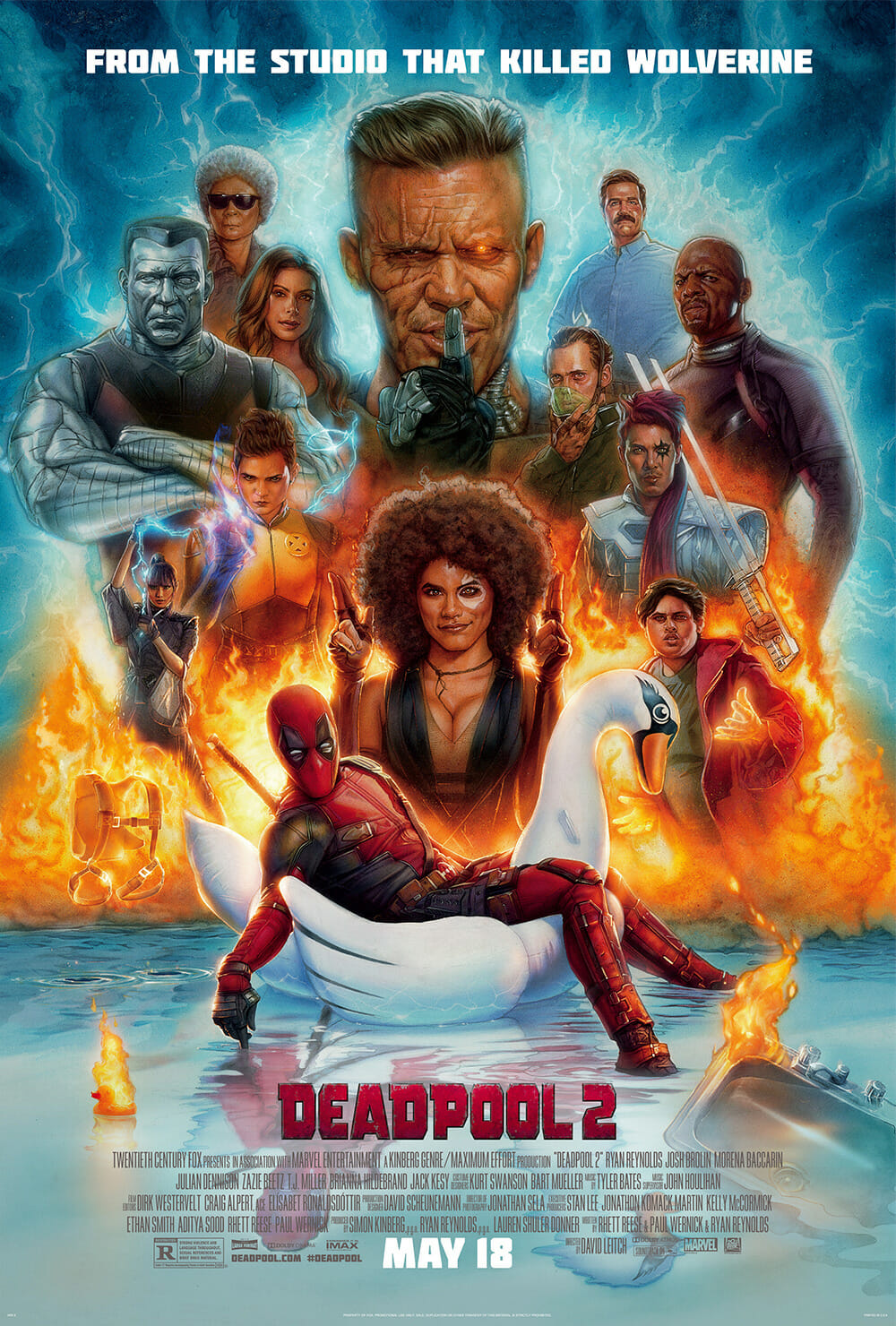 The sequel to 2016’s Deadpool sees the mercenary teaming with returning and new heroes to save a teenage mutant from a time traveling enhanced soldier. The group of heroes includes the returning Negasonic Teenage Warhead (played by out actor Brianna Hildebrand), and her new girlfriend and fellow X-Men teammate, Yukio. The film gave audiences a first for the wide release superhero genre when Negasonic and Yukio clearly state that they are girlfriends. This is a milestone in a genre that has too often rendered LGBTQ characters to be invisible, and earned the film a GLAAD Media Award nomination.
The sequel to 2016’s Deadpool sees the mercenary teaming with returning and new heroes to save a teenage mutant from a time traveling enhanced soldier. The group of heroes includes the returning Negasonic Teenage Warhead (played by out actor Brianna Hildebrand), and her new girlfriend and fellow X-Men teammate, Yukio. The film gave audiences a first for the wide release superhero genre when Negasonic and Yukio clearly state that they are girlfriends. This is a milestone in a genre that has too often rendered LGBTQ characters to be invisible, and earned the film a GLAAD Media Award nomination.
While there has been a long history of LGBTQ characters in comic books, those characters have often not made it to the screen or had their identities erased if they do jump from page to screen. This type of erasure was an issue in the first film with Deadpool’s pansexuality, a problem that carried through to the sequel. Additionally, X-Force member Shatterstar was a short-lived member of the hero team. While Shatterstar has had a tangled past with different runs of comic books, he has often been portrayed as queer and in a relationship with fellow hero Rictor. Shatterstar did not get any personal development or back story before he was killed.
Star Ryan Reynolds has confirmed that there will be a third Deadpool film that will likely focus on the X-Force team as a whole. We hope to see Yukio and Negasonic return in the third movie with an expanded role from their relatively minor presence in this film. This could also be an opportunity for the franchise to finally pay off Deadpool’s pansexuality, and give him a male love interest.
In December, Fox released Once Upon A Deadpool as a PG-13 cut of the film. In order to make the film connect after cutting so much of the R-rated footage, it employed a new frame inspired by The Princess Bride with Deadpool reading the story to Fred Savage. Multiple sources have classified the film as a re-release rather than a new project. Given that the film had no additional scenes featuring Negasonic and Yukio or any new LGBTQ content, GLAAD did not count Once Upon a Deadpool as a separate release in Fox’s total films in this tally. This would have misleadingly inflated the numbers for the same content.
Love, Simon
Vito Russo Test: Pass
Widest theatrical release: 2,434 theaters
 The GLAAD Media Award-winning film Love, Simon made history as the first major studio release to focus on a gay teenage romance, though it is difficult to believe that it took until 2018 for that first to happen.
The GLAAD Media Award-winning film Love, Simon made history as the first major studio release to focus on a gay teenage romance, though it is difficult to believe that it took until 2018 for that first to happen.
The film follows closeted high schooler Simon who is blackmailed by a classmate after discovering the emails between Simon and his mystery love interest, Blue. Simon is eventually outed, but in a powerful moment he takes back control of his own narrative, affirms that he “deserves a great love story,” and ultimately inspires Blue (revealed to be his schoolmate, Bram) to come out and the two to get together.
While coming out stories have been told before, Love, Simon broke new ground in telling that story in this kind of medium. Having a gay lead and multiple queer supporting characters in a film opening in thousands of theaters around the country and overseas is revolutionary, especially when two of the three gay characters are played by queer Black actors. The movie also covered several aspects of a queer teenage experience including coming out, reactions of family and friends, first love, school, bullying, and the effects of digital culture on young people. It is especially important that the film had a happy ending for Simon and Bram – something that remains entirely too rare for queer characters – and that they shared an onscreen kiss.
One other notable aspect of the film is the way it touches on Simon’s own internalized homophobia and femmephobia in how Simon initially reacts to Ethan, a more femme student who is out and bullied at their school.
Love, Simon is exactly the type of film GLAAD has been calling on Hollywood to release from a major studio since the introduction of this report, and we encourage other studios to follow Fox’s example. It is worth noting that Fox 2000, the company label that produced the film, was shuttered in this year’s Disney acquisition.
“Films like Love, Simon, that aren’t tent poles, but also aren’t independent films are gonna find it harder and harder to get released in theaters. It’s why we need GLAAD now more than ever. The fight for equality in our multiplexes is going to get more difficult, not easier. But that’s okay, I’m not worried. Because making movies like Love, Simon and the TV shows I’m lucky to be a part of, I get to meet and work with a lot of young people. And unlike the scared kid that I was at that age, they are fearless. And they’re going to keep telling stories until every kid of every race and every gender and every sexuality gets to go to the movies and watch their very own Love, Simon. And we all can’t wait to buy tickets,” said director Greg Berlanti at the 30th GLAAD Media Awards.
GLAAD will be keeping a close eye on the state of LGBTQ inclusion in the newly organized Hollywood studio system going forward.
Red Sparrow
Vito Russo Test: Pass
Widest theatrical release: 3,064 theaters
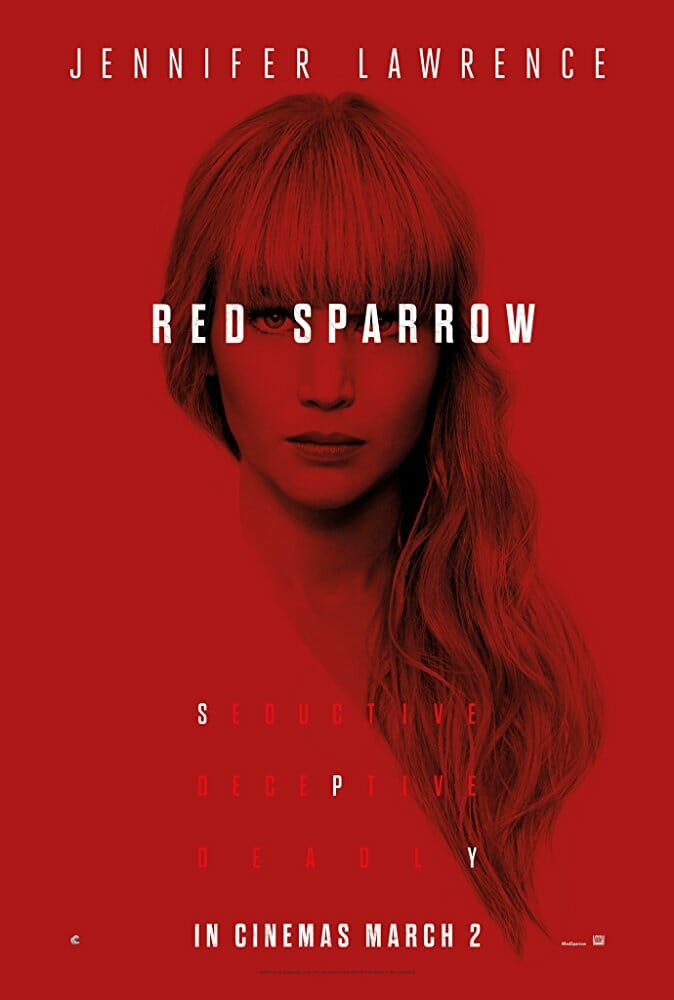 This spy movie is an example of some of the worst ongoing tropes we have repeatedly seen employed when dealing with queer women. Stephanie is the Chief of Staff to a U.S. Senator, and she is in a relationship with Marta, a Russian woman who is a member of the spy group known as the Sparrows who are trained to infiltrate and seduce to achieve their missions. Marta is killed by her bosses, and Stephanie is then blackmailed for fraternizing with a Russian operative and is subsequently murdered herself when she attempts to escape the CIA.
This spy movie is an example of some of the worst ongoing tropes we have repeatedly seen employed when dealing with queer women. Stephanie is the Chief of Staff to a U.S. Senator, and she is in a relationship with Marta, a Russian woman who is a member of the spy group known as the Sparrows who are trained to infiltrate and seduce to achieve their missions. Marta is killed by her bosses, and Stephanie is then blackmailed for fraternizing with a Russian operative and is subsequently murdered herself when she attempts to escape the CIA.
GLAAD did not count Marta as a queer character as her involvement with a woman is only shown as part of a transactional moment – using the women she is sleeping with to gain something – rather than out of any genuine attraction to women. Though Stephanie was previously married to a man, given her relationship with Marta and comments she makes throughout, GLAAD counted her as a lesbian character. There was also a minor gay character who made a short appearance, and was referred to as “degenerate” rather than given a name. Red Sparrow is an example of a film which does pass the Vito Russo Test as Stephanie’s meeting with the protagonist is crucial to the plot moving forward, but the story remains problematic.
Hollywood’s history of “Bury Your Gays” dates back decades to production codes which required any LGBTQ character’s story to only be told as a tragedy. Their story had to end in death or punishment, so the audience would understand that being LGBTQ was not something they should want to be. This trope made headlines over the past four years after an explosion of the issue on television – largely impacting queer women who were sacrificed to further a more central character’s narrative. Creators must do better to interrogate the stories they are telling and understand toxic patterns to which they may be contributing.
OPPORTUNITIES AHEAD
The future of several of the previously announced upcoming Fox films is now unclear following the Disney acquisition of Fox and the subsequent shuttering of production label Fox 2000, which was responsible for Love, Simon and several other progressive projects. It is worth noting that one high profile announced film from Fox 2000 is The Editor, a novel adaptation set to be directed by Greg Berlanti, about a gay author whose editor is Jackie O. It is not yet known what will happen with the slate of Fox 2000 films, but GLAAD hopes that Disney will move forward with this film or that another studio can pick it up.
An exciting film that remains on the schedule is Nimona, set for release in March of 2021. The film is an adaptation of out writer and artist Noelle Stevenson’s graphic novel and comic of the same name which includes a romantic history between the two leading men: the villain Ballister Blackheart and hero Goldenloin. This would be a huge step for Disney in releasing a younger skewing queer-focused film, and it already has a built in fan base. Two other ongoing comic adaptations that Disney now owns are Lumberjanes and Goldie Vance, both GLAAD Media Award winners from BOOM! Studios. Lumberjanes follows a group of girls at a supernatural summer camp, including girlfriends Mal and Molly, and Jo, who is transgender and the science master of the group. Goldie Vance follows the titular young investigator, including her relationship with her girlfriend. Given Disney’s weak history of LGBTQ inclusion, moving forward with these two releases would be huge for both the studio and for the road forward for inclusion in all-ages programming in film.
Fox Searchlight Pictures, created in 1994, is a subsidiary of 20th Century Fox and specializes in the release and distribution of independent and foreign films in the United States, as well as horror films and dramedies. In March of this year, Fox Searchlight was one of the many Fox properties acquired by Walt Disney Studios. As of now, it seems that Fox Searchlight will maintain a similar slate and brand going forward. Fox Searchlight Pictures has been responsible for the release of several high profile LGBTQ-inclusive films, including Boys Don’t Cry (1999), Kinsey (2004), and Battle of the Sexes and The Shape of Water (2017).
Can You Ever Forgive Me?
Widest theatrical release: 555 theaters
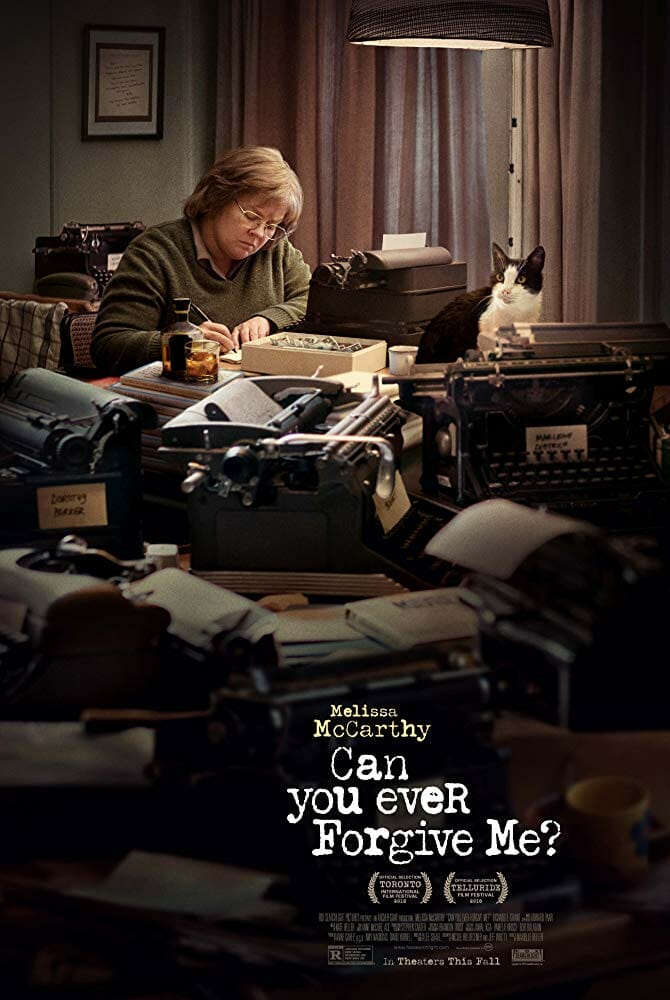 This biopic is based on the confessional memoir of the same name by Lee Israel as she attempted to save her failing writing career by forging letters from deceased authors and playwrights to make a living. The film’s central relationship is the friendship between Israel, who is a lesbian, and her best friend Jack, a gay drug dealer who helps her sell the forged letters she has written. The GLAAD Media Award-nominated film does a remarkable job of including both Lee and Jack’s sexualities as part of their stories – they each have several love interests, talk about previous relationships, and much of the film takes place at the iconic New York gay bar Julius – without making their identity the source of conflict of the film or the central focus of their stories. This is the kind of storytelling GLAAD would like to see more of on screens – and critics clearly agree as the film racked up several awards nominations for both writing and acting and holds a 98 percent rating on Rotten Tomatoes.
This biopic is based on the confessional memoir of the same name by Lee Israel as she attempted to save her failing writing career by forging letters from deceased authors and playwrights to make a living. The film’s central relationship is the friendship between Israel, who is a lesbian, and her best friend Jack, a gay drug dealer who helps her sell the forged letters she has written. The GLAAD Media Award-nominated film does a remarkable job of including both Lee and Jack’s sexualities as part of their stories – they each have several love interests, talk about previous relationships, and much of the film takes place at the iconic New York gay bar Julius – without making their identity the source of conflict of the film or the central focus of their stories. This is the kind of storytelling GLAAD would like to see more of on screens – and critics clearly agree as the film racked up several awards nominations for both writing and acting and holds a 98 percent rating on Rotten Tomatoes.
The Favourite
Widest theatrical releases: 1,554 theaters
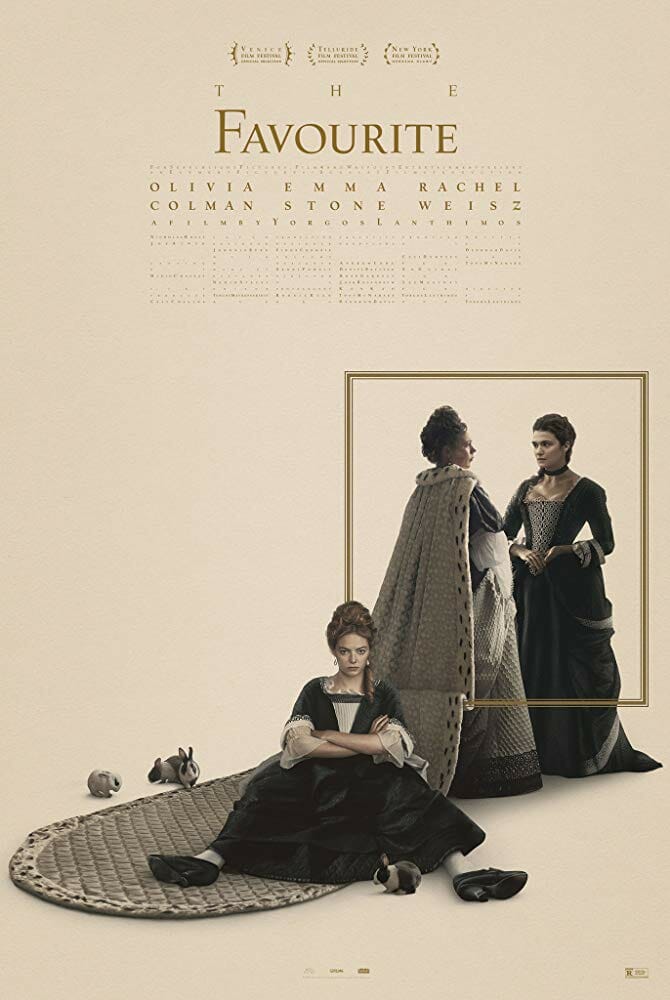 This GLAAD Media Award-nominated period drama centers on the relationships and royal court tensions between Queen Anne; her friend, lover, and advisor Sarah Churchill; and Sarah’s treacherous cousin Abigail Masham as the two women struggle for power and Anne’s favor. While Queen Anne is clearly in love with Sarah and eventually falls for Abigail’s lies, the motives and feelings of the other women are often not as clear. GLAAD did count Sarah as bisexual in its tally, as she was depicted as having some genuine moments of love and care for Anne as well as for her husband. Even so, it is clear that she was also manipulating Anne’s fragile state for her own gains. Abigail was not counted as a queer character as she is never portrayed to have sincere interest in a romance with Anne, something the Queen sees through in the end though she is stuck in the decisions she has made. The film does veer into a stereotype of queen women’s relationships that needs to be retired – the transactional relationship – but does improve on some previous takes of the story by including the genuine care shown between Anne and Sarah.
This GLAAD Media Award-nominated period drama centers on the relationships and royal court tensions between Queen Anne; her friend, lover, and advisor Sarah Churchill; and Sarah’s treacherous cousin Abigail Masham as the two women struggle for power and Anne’s favor. While Queen Anne is clearly in love with Sarah and eventually falls for Abigail’s lies, the motives and feelings of the other women are often not as clear. GLAAD did count Sarah as bisexual in its tally, as she was depicted as having some genuine moments of love and care for Anne as well as for her husband. Even so, it is clear that she was also manipulating Anne’s fragile state for her own gains. Abigail was not counted as a queer character as she is never portrayed to have sincere interest in a romance with Anne, something the Queen sees through in the end though she is stuck in the decisions she has made. The film does veer into a stereotype of queen women’s relationships that needs to be retired – the transactional relationship – but does improve on some previous takes of the story by including the genuine care shown between Anne and Sarah.
Super Troopers 2
Widest theatrical release: 2,125 theaters
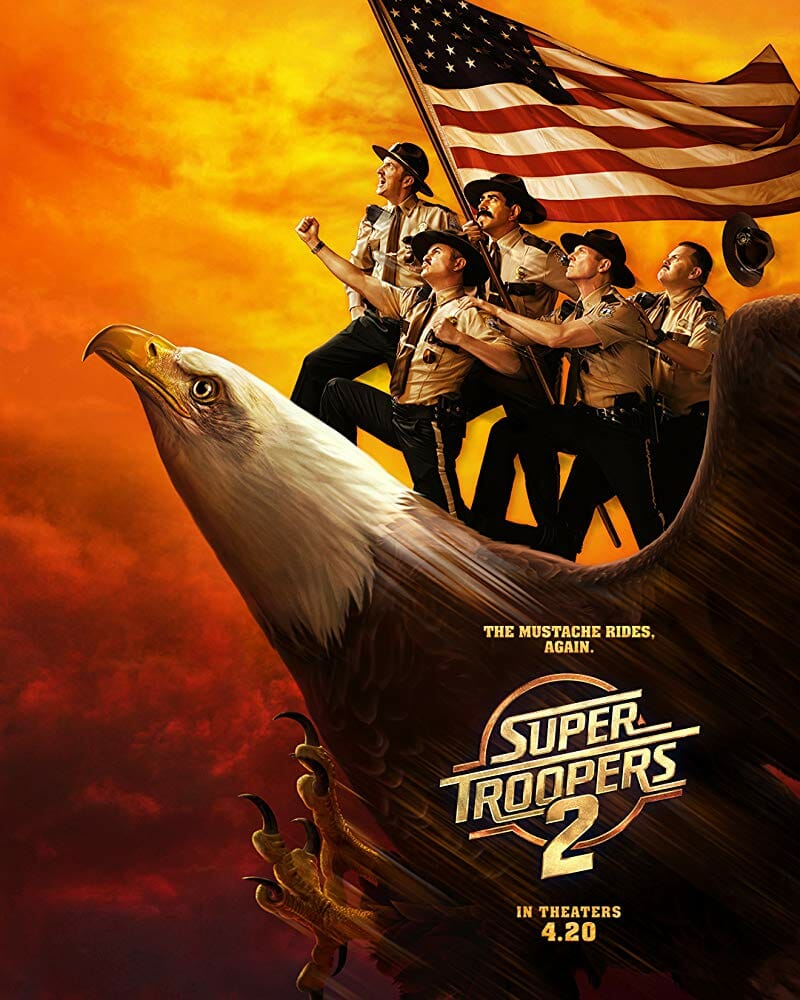 A sequel to the 2001 original, Super Troopers 2 reunites the group of Vermont Highway Patrol men to handle the transition of a small French-Canadian town into part of the United States. Unfortunately, some humor of the film should be left with the original from 18 years ago. There is a running gag where a character, Thorny, accidentally takes estrogen and becomes overly emotional and even lactates toward the film’s end. Additionally, there are jokes about men being extremely uncomfortable when dared to kiss each other, and hesitant to perform CPR because it would be like kissing a man. There are multiple instances where the Canadian policemen have a sexual freedom that is not shared with the American protagonists. In one scene, the groups go to a brothel and one of the Mounties engages with men and women sex workers. The Canadians offer to share with the Americans who hastily refuse, clearly more uncomfortable with the male sex workers. These are just a few examples of the casual anti-LGBTQ sentiment which undercuts the film, and makes LGBTQ people no more than the subject of punchlines for jokes that weren’t funny then or now.
A sequel to the 2001 original, Super Troopers 2 reunites the group of Vermont Highway Patrol men to handle the transition of a small French-Canadian town into part of the United States. Unfortunately, some humor of the film should be left with the original from 18 years ago. There is a running gag where a character, Thorny, accidentally takes estrogen and becomes overly emotional and even lactates toward the film’s end. Additionally, there are jokes about men being extremely uncomfortable when dared to kiss each other, and hesitant to perform CPR because it would be like kissing a man. There are multiple instances where the Canadian policemen have a sexual freedom that is not shared with the American protagonists. In one scene, the groups go to a brothel and one of the Mounties engages with men and women sex workers. The Canadians offer to share with the Americans who hastily refuse, clearly more uncomfortable with the male sex workers. These are just a few examples of the casual anti-LGBTQ sentiment which undercuts the film, and makes LGBTQ people no more than the subject of punchlines for jokes that weren’t funny then or now.

